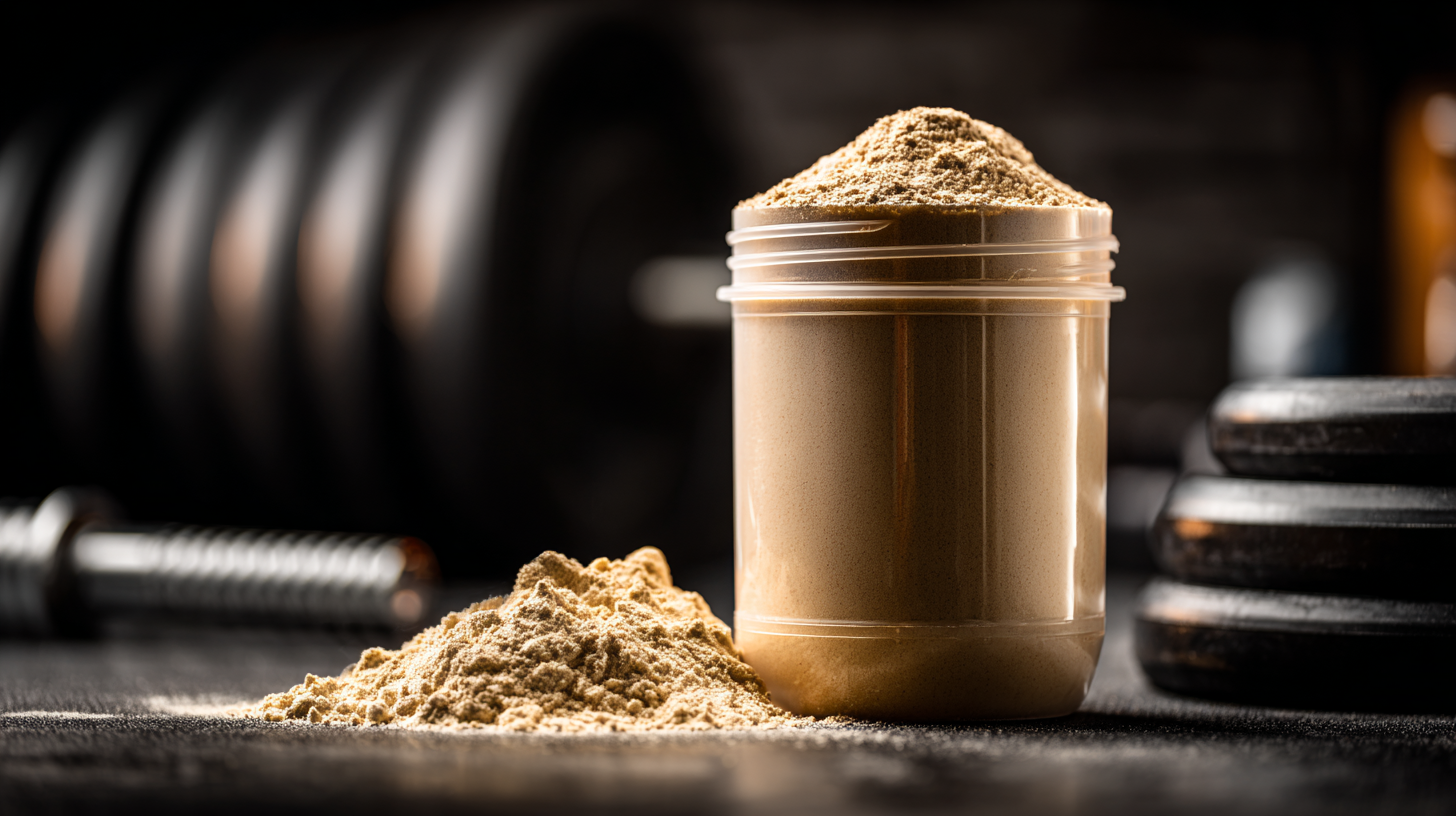In recent years, the demand for Muscle Protein Powder has skyrocketed globally, with the market projected to reach an impressive USD 29.6 billion by 2025, according to research by Grand View Research. As wellness trends continue to rise, consumers are increasingly seeking high-quality protein supplements to enhance their fitness regimens and support muscle recovery. The appeal of Muscle Protein Powder extends beyond fitness enthusiasts; it has captured the attention of a diverse demographic seeking dietary solutions. In this competitive landscape, products originating from China have gained traction, thanks to their innovative formulations and compliance with international quality standards. As buyers around the world navigate through numerous options, understanding the critical factors that influence the selection of the best Muscle Protein Powder becomes essential for making informed choices that prioritize quality and effectiveness while catering to diverse dietary needs.

When selecting the best muscle protein powder, understanding the various types available on the market is crucial. From whey protein to casein and plant-based alternatives, each type has unique benefits that cater to different dietary needs and fitness goals. Whey protein, for instance, is quickly absorbed and ideal for post-workout recovery, while casein offers a slow release of amino acids, making it suitable for overnight muscle repair.
 Tips: Consider your training schedule when choosing a protein powder. If you’re training intensely and require quick recovery, whey might be the best option for you. On the other hand, if you're looking for a steady supply of protein throughout the day, casein or plant-based proteins could better meet your needs.
Tips: Consider your training schedule when choosing a protein powder. If you’re training intensely and require quick recovery, whey might be the best option for you. On the other hand, if you're looking for a steady supply of protein throughout the day, casein or plant-based proteins could better meet your needs.
Additionally, pay attention to the ingredient list. Many protein powders contain added sugars, artificial flavors, or fillers that can detract from their health benefits. Opting for clean protein sources with minimal ingredients ensures you're fueling your body effectively.
Tips: Always check for third-party testing or certifications to ensure the product’s quality and safety. This practice can help you avoid those with harmful additives and guarantee that you're getting the protein you paid for.
When it comes to enhancing muscle recovery and growth, whey protein stands out as one of the top choices for fitness enthusiasts and athletes alike. Renowned for its rapid absorption, whey protein facilitates a quick influx of essential amino acids into the bloodstream post-exercise. This fast-acting characteristic makes it ideal for consumption after workouts, enabling the body to kickstart the recovery process almost immediately. Unlike other protein sources, whey is digested swiftly, which helps in minimizing muscle soreness and fostering speedy healing of micro-tears that occur during intense training.
In addition to its quick absorption, whey protein plays a crucial role in muscle recovery by supporting protein synthesis. The high-quality protein content found in whey provides the body with the necessary building blocks to repair and grow muscle tissues. With its rich composition of branched-chain amino acids (BCAAs), particularly leucine, whey activates the anabolic pathways in the body that stimulate muscle recovery.
Therefore, incorporating whey protein into a post-workout routine not only enhances recovery but also contributes to long-term muscle growth, making it an essential supplement for anyone looking to optimize their fitness journey.
Casein protein, derived from milk, has gained popularity among fitness enthusiasts and athletes for its unique properties. Unlike whey protein, which is rapidly digested, casein is a slow-digesting protein. This characteristic allows it to provide a gradual release of amino acids into the bloodstream, making it an ideal choice for muscle recovery and growth, especially during periods of fasting, such as overnight.
Consuming casein protein before bedtime can be particularly beneficial, as it sustains protein levels in the body while you sleep, promoting muscle repair and minimizing catabolism. Its gel-like consistency in the stomach slows down digestion, which not only prolongs satiety but also enhances nutrient absorption. For those looking to support their long-term fitness goals, integrating casein protein into their diet can enhance overall performance and aid in muscle development.
When selecting a muscle protein powder, global buyers should consider the protein's source, amino acid profile, and digestion rate. Casein protein stands out for its effectiveness in providing sustained nutrition, making it a smart addition to anyone’s nutritional regimen. For those aiming to maximize their muscle gains and maintain a balanced intake of protein throughout the day, casein protein is an essential option.
Plant-based protein powders are gaining significant traction among health-conscious consumers, especially in the vegan community and those with dietary restrictions. According to a report by Grand View Research, the global plant-based protein market is expected to reach $37.4 billion by 2027, growing at a CAGR of 7.0%. This surge is attributed to a rising awareness of health benefits, sustainability, and a shift in consumer preferences towards more ethical dietary choices.
One of the key advantages of plant-based protein powders is their hypoallergenic nature. Many popular protein sources like whey or casein can trigger allergies or intolerances, which often leads to digestive issues. In contrast, common plant-derived proteins such as pea, hemp, and brown rice offer a complete amino acid profile while being easier on the stomach. A study published in the Journal of Applied Physiology indicated that individuals consuming plant-based protein not only enjoyed similar muscle recovery benefits as those using whey protein, but also reported improved gastrointestinal comfort. This makes plant-based options ideal for consumers looking to avoid allergens without sacrificing their protein intake.

Blending proteins from animal and plant sources has emerged as a compelling approach to enhance protein techno-functionalities in food applications. Recent studies suggest that partial replacement of animal proteins with plant proteins can not only improve nutritional profiles but also positively influence the stability and texture of food products. This synergistic effect paves the way for the development of innovative formulations that cater to the growing demand for sustainable and health-conscious choices among consumers.
One intriguing area of research focuses on the stabilization of emulsions, especially those comprising potato and lupin proteins. Traditional oil-in-water emulsions face challenges related to thermodynamic instability, making it difficult to maintain consistent texture and flavor over time. However, by leveraging the unique properties of blended plant proteins, food scientists are uncovering new dynamics that enhance emulsion stability during storage. This not only extends shelf life but also improves the overall sensory qualities of food products, providing a richer experience for consumers who are increasingly interested in both taste and nutrition.
This chart illustrates the protein content per serving of different types of protein powders. It highlights the benefits of blending protein sources for enhanced muscle recovery and growth.
